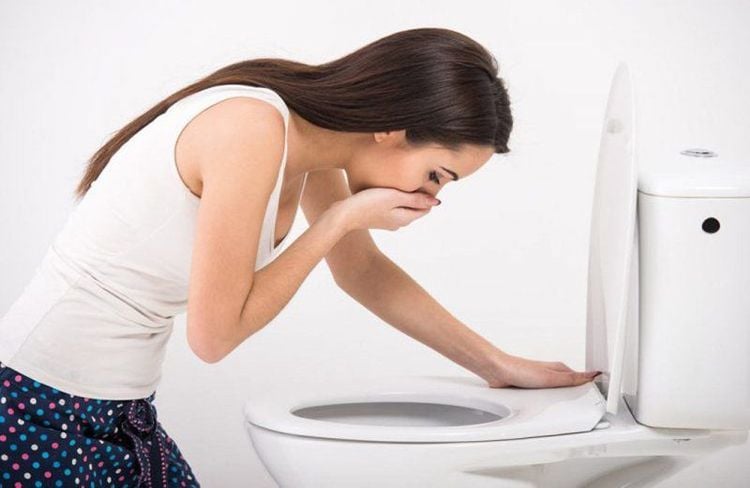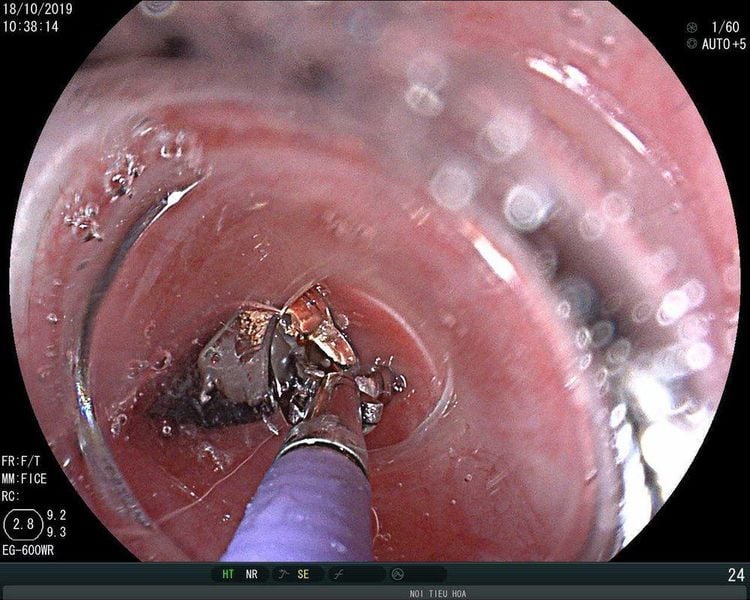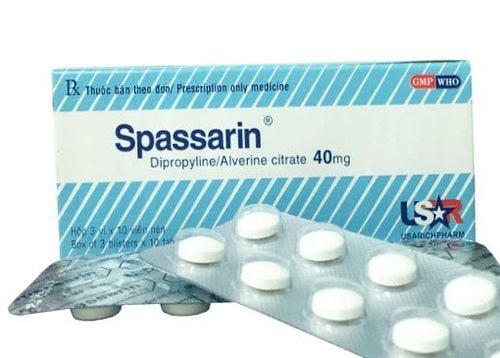This is an automatically translated article.
The article was written by MSc Nguyen Thai Binh - Gastroenterologist, Department of General Surgery - Vinmec Ha Long International General Hospital.Digestive tract foreign body is a common emergency situation in daily life. This rare life accident can happen at any age and make the patient and loved ones worry, if not examined and detected early, this condition can cause serious complications. affect the health and even the life of the patient.
The prevalence of foreign bodies in the gastrointestinal tract is currently 1 to 1.2 people/10,000 people. In which, about 20% of foreign bodies will be lodged in the upper gastrointestinal tract (from the pharynx, stomach, and duodenum at Treitz angle) and treated by endoscopic grasping of the oesophagus-gastroduodenal tract.
The remaining cases account for nearly 80% of cases where most foreign bodies drain on their own and are safely eliminated from the intestine. However, in about 1% of cases, the foreign body has moved through the pylorus, causing dangerous complications such as intestinal perforation (due to sharp foreign bodies), intestinal obstruction (foreign body size). large), intra-abdominal abscess (foreign body penetrates the intestinal wall and moves into the peritoneal cavity), even death due to severe toxic infection.
1. Is the gastrointestinal tract foreign body really dangerous?
Complications due to foreign bodies in the gastrointestinal tract include: semi-obstruction or intestinal obstruction, foreign bodies penetrating the digestive tract wall, causing peritonitis or forming intra-abdominal abscesses...
Intestinal obstruction is a complication. Symptoms can be seen in gastrointestinal foreign bodies with typical clinical symptoms: abdominal pain, vomiting and bowel obstruction. Abdominal pain is often the initial symptom of the disease, the pain can be gradual or sudden, starting in the navel or flank area and quickly spreading throughout the abdomen. Vomiting often co-occurs with abdominal pain and does not relieve the pain. Constipation is usually a few hours after onset, symptoms depend on the location of the foreign body causing high or low intestinal obstruction. Peritonitis can also be caused by a foreign body penetrating the gastrointestinal tract with typical symptoms of abdominal pain, abdominal cramping, and toxic infection... especially when it comes late. An intra-abdominal abscess is a purulent mass surrounded by the great omentum or abdominal wall and gastrointestinal wall with the contents of a foreign body penetrating the intestinal wall.

2. Circumstances occurring
Often the patient is not sure if he or she has swallowed a foreign body.
People often easily swallow foreign objects in festivals, festivals... In parties, some people do not chew well, swallow foreign objects mixed in food without knowing it. Children who are naughty or swallow toys, objects, and seeds are also at high risk. In addition, the group of elderly and frail patients, or those who have lost teeth, reduce their ability to bite, tear, and chew food, leading to trying to swallow tough food, bones, toothpicks and even dentures.... There are also In case the patient accidentally swallows a foreign object, it is a pill with a plastic shell with a sharp edge because the patient takes the drug at night or at night without turning on the light, so it is possible to take the pill with its shell intact. Another group at high risk of swallowing foreign bodies are those who have a habit of taking a toothpick after eating and then falling asleep, swallowing a toothpick without knowing it.
3. Symptoms
Depending on the location of the trapped foreign body, the corresponding symptoms appear. Foreign bodies can be found in any part of the gastrointestinal tract from the mouth, esophagus, stomach, small intestine, rectum, and anus, but the esophagus and small intestine are most common.
Foreign bodies are usually pieces of animal bones (bones of fish, chickens, pigs...), items in daily life (bamboo toothpicks, keys, coins...) or powdered food blocks. solid (pearls...). Summary of statistics shows that foreign bodies > 6 cm in length or foreign bodies > 2.5 cm in diameter rarely get into the stomach. Esophageal foreign body: usually detected right after swallowing the foreign body, the patient has a feeling of swallowing difficulty and pain, cannot eat and often vomits after continuing to eat, this causes the person to swallow the foreign object. have to go to the doctor. Some other cases feel chest tightness, difficulty breathing, pain accompanied by burning behind the sternum. In the late stage, the patient develops fever, pain in the pharynx or behind the breastbone, stagnation of sputum and food due to foreign objects scratching the esophagus, infection at the site where the foreign body is stuck. Stomach foreign body: the patient can still eat and drink, only feeling nauseous, undigested and often vomiting new and old food. In addition, there may be pain due to increased gastric contraction to expel the foreign body through the pyloric orifice. Foreign body in small intestine or colon, vague symptoms in the first few days may cause patients to have dull abdominal pain, easy to mistake for other diseases, late stage into abscess, patients have more severe infection. fever, abdomen with signs of peritonitis.

4. Methods of diagnosing gastrointestinal foreign body
Exploiting the history of eating and drinking and symptoms of intrusion when choking, swallowing foreign objects can guide the diagnosis of patients with gastrointestinal foreign bodies. Chest X-ray can show foreign objects in contrast or imaging Indirect images are pneumonia, mediastinal abscess, pleural effusion in a foreign body that has perforated the esophagus. Abdominal X-ray unprepared: crescent of air below diaphragm in small bowel or colorectal foreign body with complications of perforation Ultrasound and CT scan of abdomen can show foreign body, complications due to foreign body perforation or obstruction Intestinal obstruction... Gastroduodenal endoscopy is a method used for definitive diagnosis and therapeutic intervention (foreign foreign bodies in the esophagus, stomach and duodenum through endoscopy) Blood tests show the syndrome. infection, increased white blood cells
5. Methods of monitoring and treatment
For foreign bodies in the esophagus, stomach, the treatment by endoscopic anesthesia is a safe and thorough method, the patient is guaranteed safe, painless and avoids esophageal spasms. , irritation, vomiting on examination.
However, it should be noted that at the late stage, when the foreign body has caused inflammatory complications, mediastinal abscess, the treatment is extremely difficult, requiring the treating doctor to have professional qualifications and experience in the treatment. treat. These cases need to be treated at large experienced centers because the surgical process is complicated and requires a lot of experience at the time of surgery as well as post-operative resuscitation.
For small bowel or colorectal foreign bodies, they should be closely monitored in medical facilities (smooth round foreign bodies ...), even surgery may be required (sharp, thin foreign bodies. ...).
Depending on the early or late stage, depending on the surgeon's experience as well as depending on the conditions of the medical facility, the patient can undergo laparoscopic or open surgery, depending on the specific injury that the patient has to cut. bowel or not, make a temporary colostomy or not.

6. Measures to prevent gastrointestinal foreign body
Eat slowly, chew well, avoid distraction. Avoid foods that are chewy or have bones in them. Note the meat, fish with bones. Grind and cook food for the elderly and children. Break the habit of taking a toothpick after flossing. Peel off the blister pack before use. When drinking alcohol, you need to be very careful while eating. Patients should absolutely not self-treat at home, do not treat according to folk tips, do not try to swallow more food with the aim of causing the foreign body to "drift" down because this can further injure the digestive tract and cause damage to the digestive tract. the problem becomes more complicated.
Vinmec International General Hospital is one of the hospitals that not only ensures professional quality with a team of doctors, modern equipment and technology. The hospital provides comprehensive, professional medical examination, consultation and treatment services, civilized, polite, safe and maximum sterilization space. Customers when choosing to perform tests here can be completely assured of the accuracy of test results.
Please dial HOTLINE for more information or register for an appointment HERE. Download MyVinmec app to make appointments faster and to manage your bookings easily.














